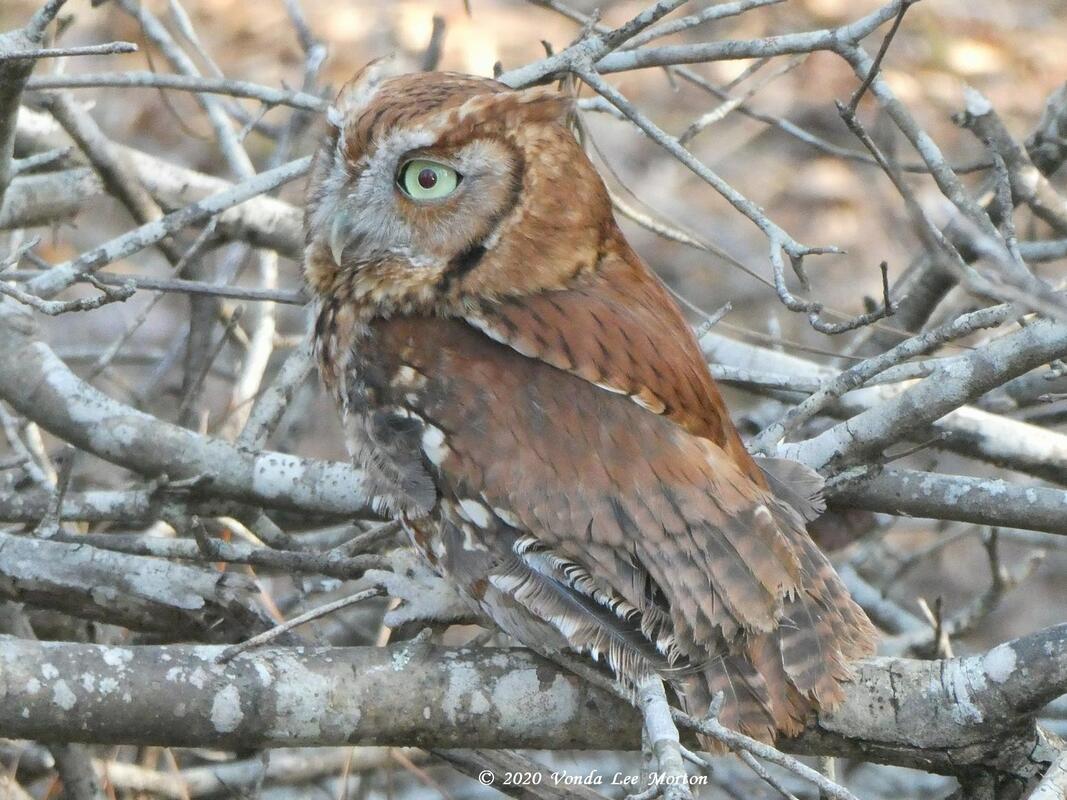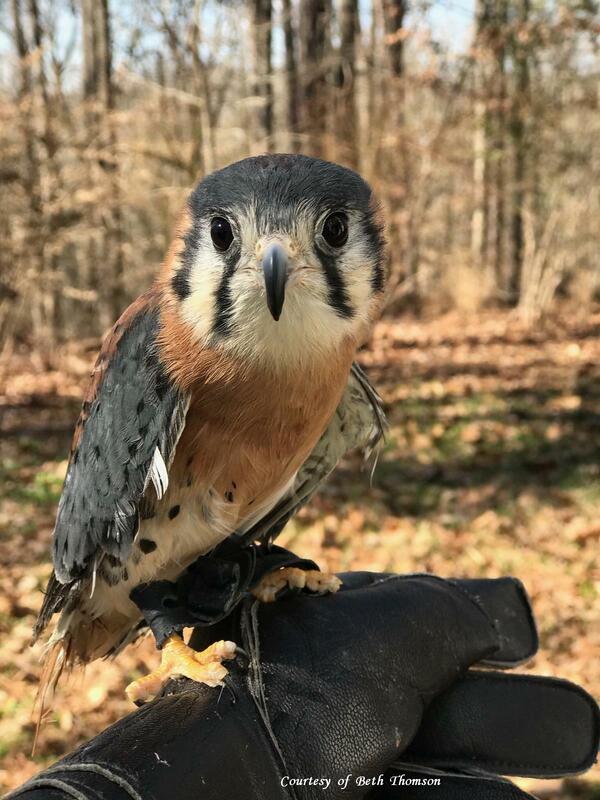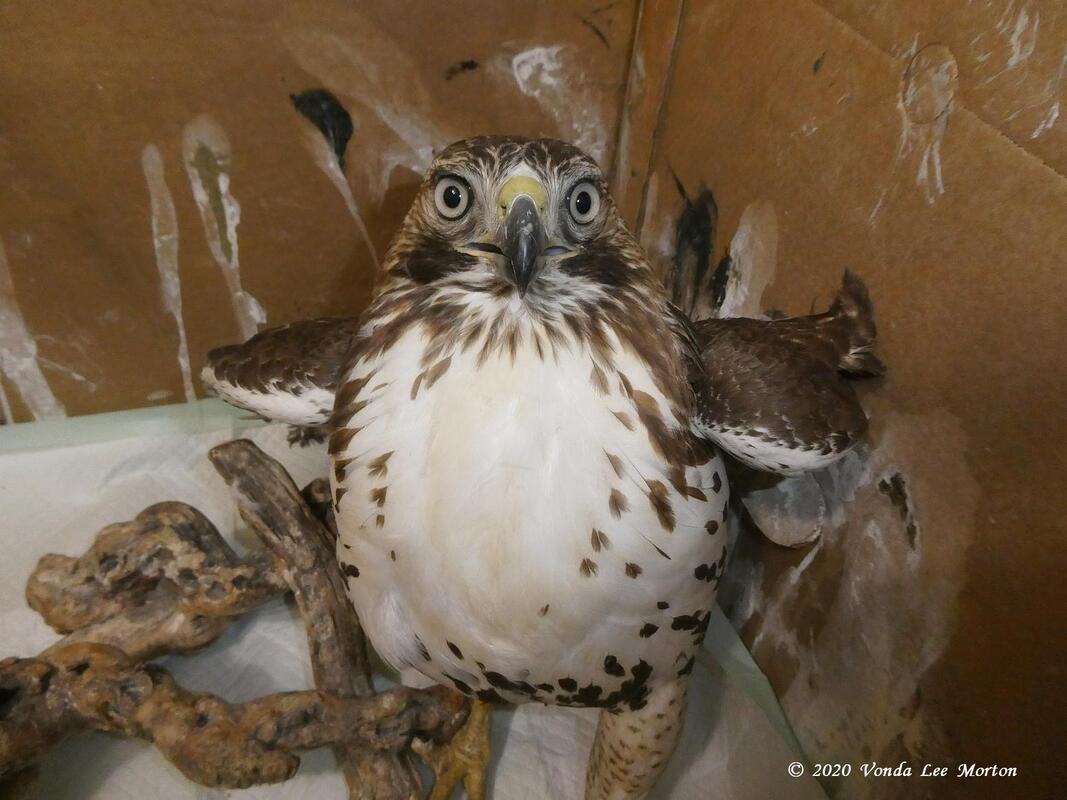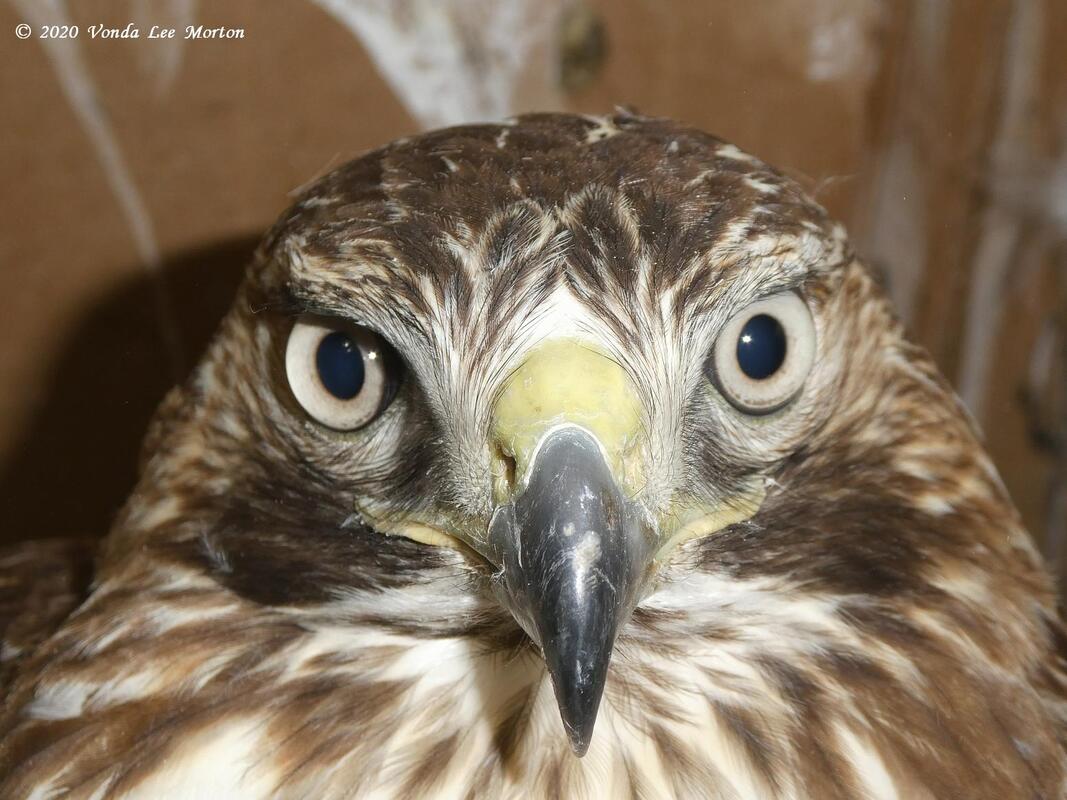A third barred owl came in late Monday and was also one of the five releases on Saturday: three barreds, the Coop and the screech. Only the screech hung around long enough for a post-release photo, and he’s actually the only one I didn’t manage a decent release video of, so that balanced out nicely. The release videos and the screech’s photo are below.
Ambulance drivers transport their patients to treatment facilities (hospitals) where they are cared for by trained, PAID professionals—the doctors and nurses—who do NOT drive all over the place, loading up and transporting their patients to their facilities. They wait for the ambulance drivers to do this. Therefore, the wildlife finder/transporter serves as the "ambulance driver," transporting to wildlife rehabbers’ homes, which serve as the treatment facilities for our "patients." Wildlife rehabbers are trained, UNPAID professionals, outside large centers, which are few and far between. And just try calling any of those large centers with paid staff and see if they’ll hop right in their cars and come pick up your wildlife. I promise you, they’ll give you the same reply we home-based folks do—no can do.
Most of us are, in fact, home-based and have paying jobs to support our rehab efforts and keep the lights on. We can’t be on the road picking up the wildlife all the time; it’s a logistical impossibility. For example, with just 12 songbird rehabbers and 11 raptor rehabbers in the entire state of Georgia (per our latest list), those of us in the state cannot pick up all the birds we get calls about. If we're on the road picking up birds—or squirrels or rabbits or deer, for my colleagues who rehab mammals—when are we supposed to take care of the ones we already have in rehab?
We will gladly walk anyone who calls through what they need to do to get wildlife secured and to us; we will refer them to volunteer transportation networks when the sheer distance requires it; we will refer to closer rehabbers when possible. Work with us on this; we want to help the wildlife you’ve found, but we cannot pick it up. Driving it to us is maybe an hour out of your day to bring us a bird or mammal that will require days, more often weeks or months, of round-the-clock care from us. Surely you can spare that measly little hour to do the right thing—the HUMANE thing.




 RSS Feed
RSS Feed
